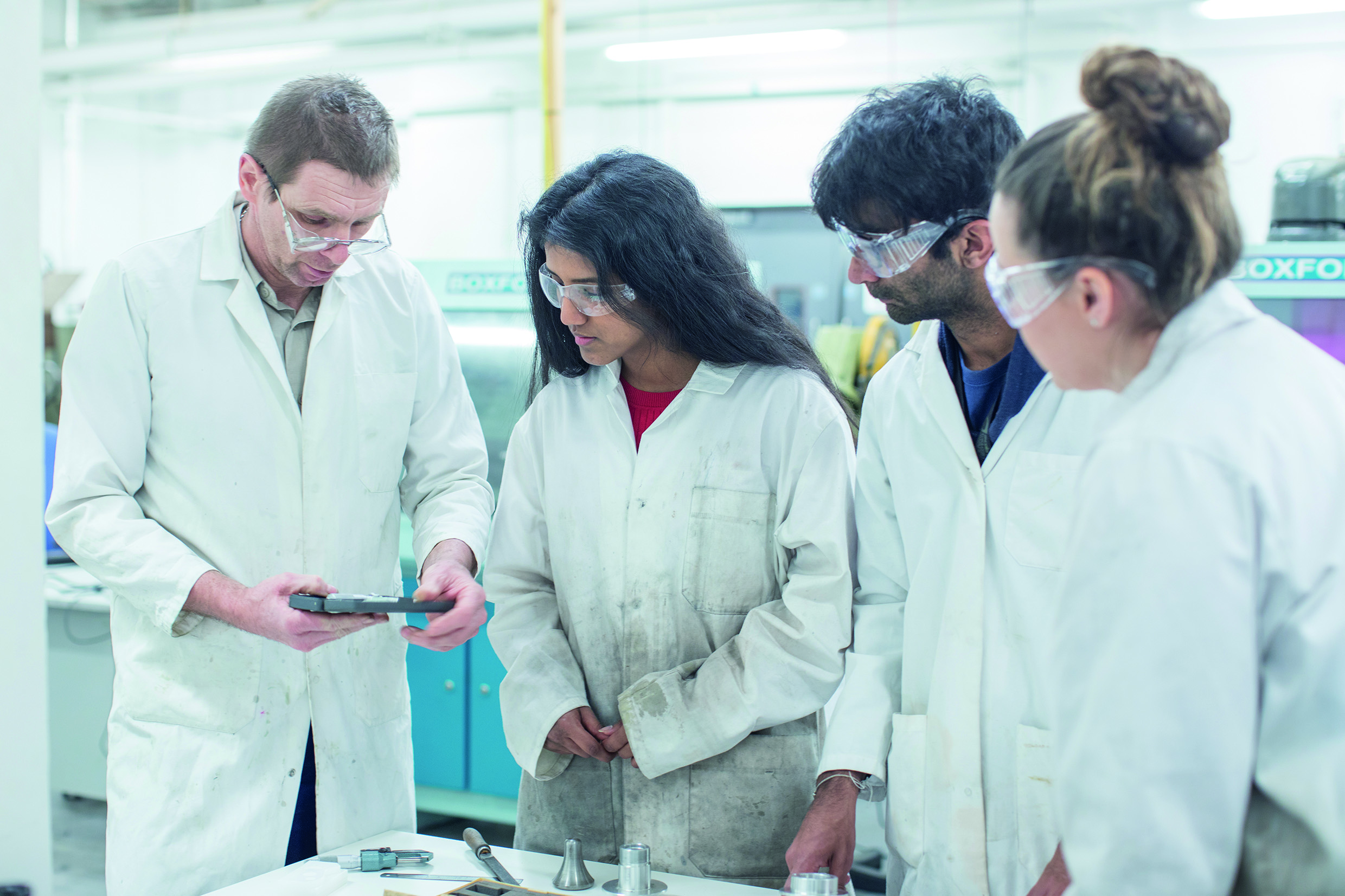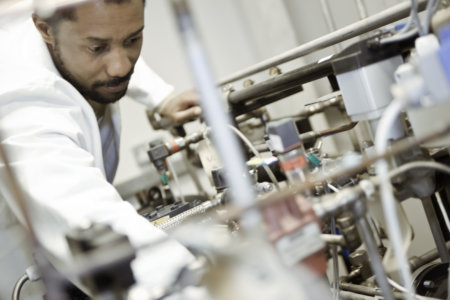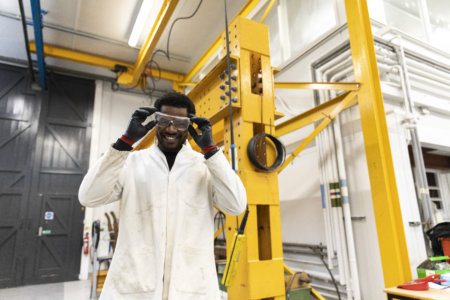For over 125 years, London South Bank University (LSBU) has been preparing and developing students for their working lives. Here, students thrive and become the best version of themselves. They enter as students and leave as world-class graduates ready to address global challenges.
At its School of Engineering, a broad range of programmes provide aspiring engineers with amazing facilities, academic excellence, cutting-edge research and an exciting, dynamic environment.
The MSc Future Energy Engineering is a prime example. It is ranked first for Student Satisfaction amongst London competitors for Chemical Engineering (Complete University Guide 2021) and first for graduate prospects in London (Sunday Times Good University Guide 2020). It is ranked first for Learning Opportunities amongst London competitors in Chemical, Process and Energy Engineering (National Student Survey 2020) as well.
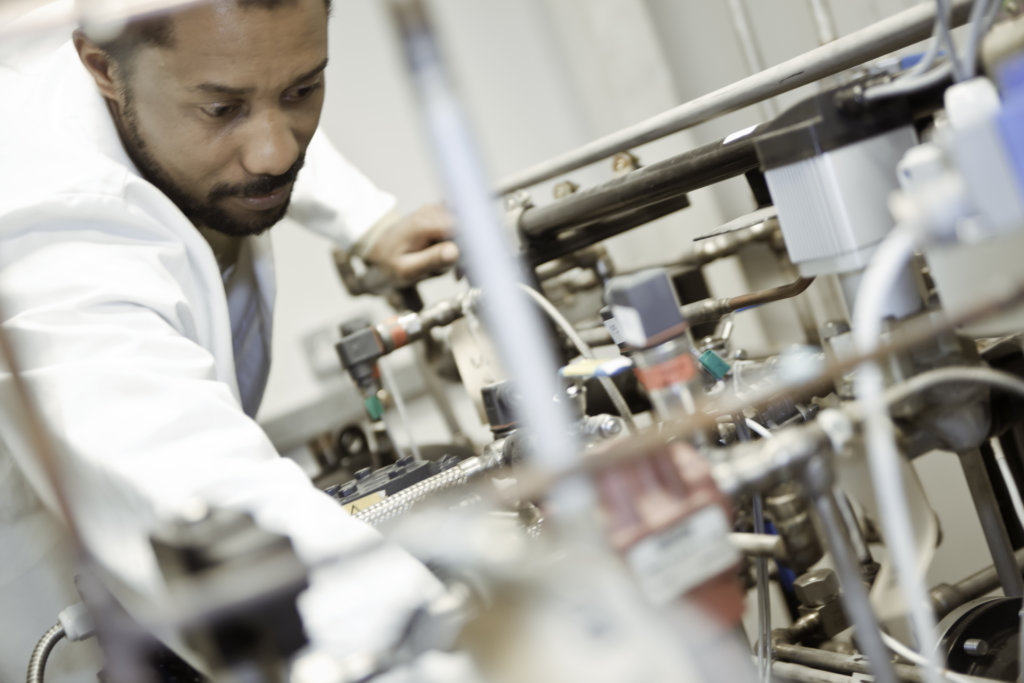
The MSc Future Energy Engineering is developed in response to relevant industry needs. Source: London South Bank University
In this well-rounded programme, theoretical knowledge and in-demand advanced technical skills are what you’ll gain. Students explore topics such as process management and its link to sustainable chemical and process engineering, process design and simulation, energy integration and optimisation. They also develop an understanding of the limitations of natural resources, how they can be accessed, and alternative approaches to sustainable energy production.
Students learn through a variety of methods that bring these concepts to life. Picture a combination of three or more lectures, tutorials, computer workshop, laboratory practical, seminars and group work. Live briefs and applied assessments give students real-world scenarios in which to learn. Seminars/events — such as those organised externally by IChemE and research seminars at LSBU — provide invaluable exposure to the industry. Invited guest lectures offer insight that helps students stay current.
At every step of the way, support is available from its multidisciplinary, experienced and enthusiastic teaching team. Students have a personal tutor who will act as their first point of contact should they have any questions about the course, academic regulations and the university facilities to support their studies.
What sets LSBU apart is how these features, principles and skills transform students into highly employable graduates. Not only do students develop critical thinking skills but independent inquiry aptitudes too — crucial traits that will enable them to be competent practitioners in their professional life.
Pair excellent academics with the school’s professional links and focus on work-based learning, and LSBU students are set to become in-demand engineers highly sought-after by major engineering bodies in London and beyond. Many find promising careers in the chemical engineering industry, oil and gas industry, energy sector, engineering design, renewable energy and pharmaceuticals industry.
LSBU’s Division of Chemical and Energy Engineering has a wide range of links through its A2i projects as well, where SMEs work in consultation with the Division, large multi-nationals such as Bosch, local companies that include site visits to Thames Water and working with Sellafield.
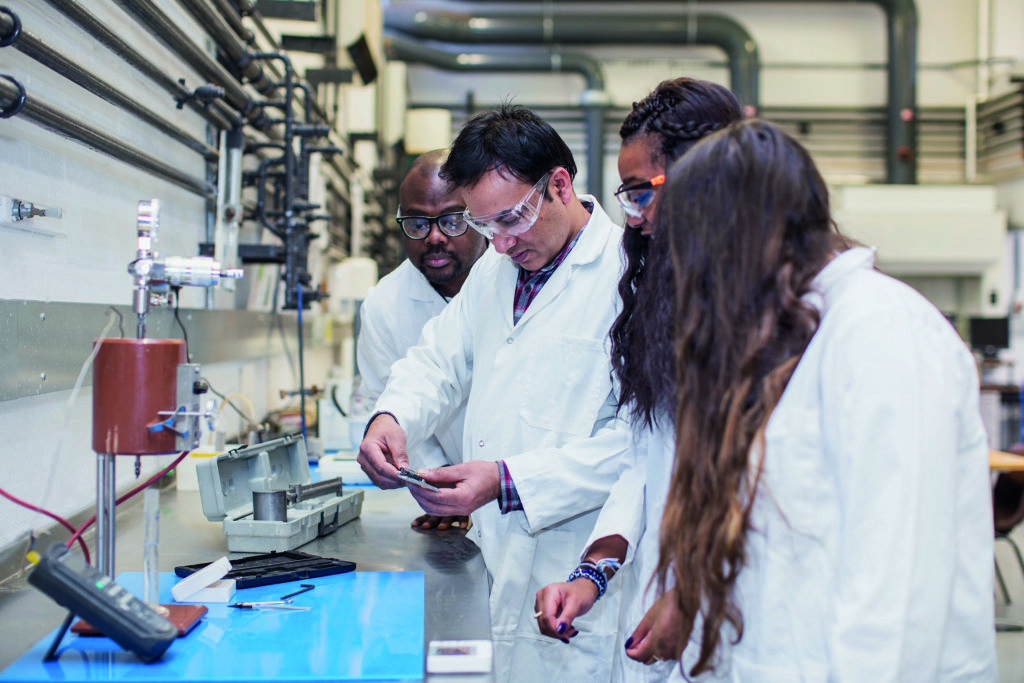
MSc Future Energy Engineering students learn through a combination of three or more of lectures, tutorials, computer workshop, laboratory practical, seminars and group work. Source: London South Bank University
Extensive facilities where ideas are brought to life
The right setting makes all the difference. At LSBU, engineering students can truly leverage its innovative, future-facing approach thanks to its extensive facilities.
Picture 600m2 of specialist laboratories covering almost every discipline. Within it, there is a model-making workshop and a fabrication workshop. Its jewel? The 1.4 million pounds 3D Virtual Engineering Lab.
LSBU knows the vital role virtual reality plays, which is why the lab boasts a virtual reality auditorium, a project-based learning lab, a rapid prototyping and post-production suite, a digital factory and a head-mounted-display suite. It’s a lab where students can design, develop and test their ideas, use virtual reality headsets to navigate their engineering projects in 3D and open up more creative solutions to real-world problems.
These features clearly show that LSBU is leading the way in delivering the kinds of know-how and skills that this fast-paced industry needs. With the school’s notable rankings as well as accredited staff members with prizes and major grants, it’s little wonder countless LSBU students have developed new ideas and brought them to life. Find out how you can do the same at LSBU here.
Follow London South Bank University on Instagram, Facebook, LinkedIn, Twitter and YouTube

